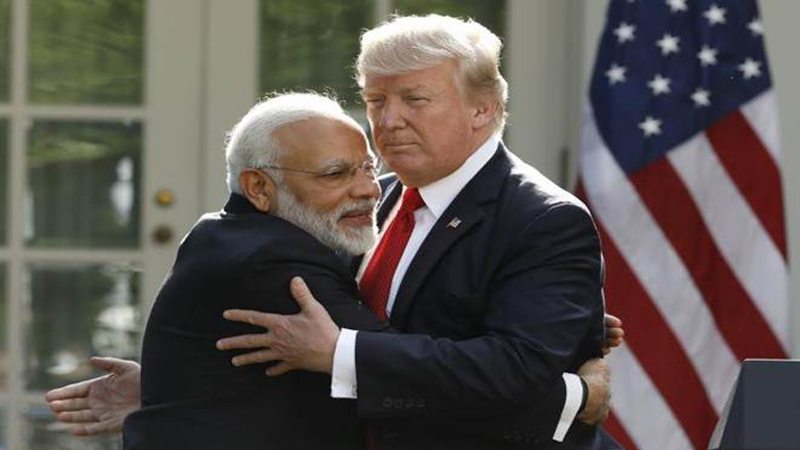
Caste-based discrimination, a deeply entrenched social issue in India, has now found its way into Western societies through the Indian diaspora. Despite progressive values in countries like the United States, the caste hierarchy is quietly being replicated, especially within Indian-American communities. The veto by California Governor Gavin Newsom of a bill aimed at banning caste-based discrimination illustrates the growing influence of upper-caste Hindus within U.S. political and economic structures. This veto, reportedly influenced by wealthy Indian-American donors, highlights how powerful segments of the diaspora can manipulate U.S. political decisions to serve their own interests.
Indian-Americans, particularly upper-caste Hindus, have gained significant power in the U.S. in recent years, especially in sectors like technology and politics. With both Democratic and Republican parties eager to court this increasingly influential voting bloc, the Indian-American community is strategically positioned to shape U.S. policy, particularly concerning India. This influence is most evident in key swing states, where Indian-American votes and donations can make a critical difference in election outcomes.
The political and economic clout of the Indian-American elite allows them to suppress criticism of caste-based discrimination, both in India and the U.S. While the bill aimed at banning caste-based discrimination was introduced to combat the growing issue, it faced strong opposition from upper-caste Hindus who exerted significant pressure on political leaders to prevent its passage. This incident exemplifies how the diaspora, particularly its wealthy and powerful members, can leverage their influence to shield regressive practices from scrutiny.
The tech industry, where many Indian-Americans hold influential positions, has also seen cases of caste discrimination. In Silicon Valley, reports of lower-caste individuals, particularly Dalits, facing discrimination at the hands of their upper-caste counterparts are becoming more frequent. This reflects how India’s deeply rooted social hierarchy is being exported to the West, undermining the inclusive values of U.S. society. Despite these alarming reports, there has been little movement to address caste-based inequality within the tech industry, largely due to the powerful position of upper-caste Hindus in these companies. The refusal to acknowledge and confront the issue perpetuates a system of oppression that leaves lower-caste individuals marginalized, even in a country that prides itself on equality and meritocracy.
A significant factor in the rise of caste-based discrimination in the U.S. is the growing influence of Hindutva, the Hindu nationalist ideology that has gained momentum under Indian Prime Minister Narendra Modi. Supporters of Hindutva within the Indian diaspora have been actively shaping political narratives in the U.S., often to align with India’s geopolitical interests. This includes lobbying for policies that downplay India’s human rights abuses, particularly its treatment of Muslims and lower-caste Hindus.The Indian-American community has played a critical role in advancing Modi’s agenda in the U.S., with many influential figures using their economic and political power to promote policies favorable to India. This includes opposing measures that would bring greater scrutiny to caste discrimination or India’s human rights record. By controlling the narrative, the Indian-American elite ensures that U.S. policymakers remain aligned with India’s strategic goals, even when those goals conflict with the values of equality and justice.
The growing power of the Indian-American community in U.S. politics has led to a disturbing trend in which caste issues are manipulated for political gain. By framing caste-based discrimination as a cultural or religious issue, upper-caste Hindus have successfully deflected attention away from the systemic inequality that persists within their community. This allows them to maintain their privileged status, both in India and the U.S., while preventing meaningful action from being taken to address caste-based discrimination. The veto of the caste-discrimination bill in California is just one example of how the diaspora’s influence can stymie progress on social justice issues. By exerting pressure on political leaders, upper-caste Hindus ensure that the status quo is maintained, both in the U.S. and India. This manipulation of caste issues reflects a broader trend of using political influence to suppress criticism and protect entrenched systems of inequality.
As the Indian diaspora continues to grow in power and influence, particularly in the U.S., it is essential to hold it accountable for perpetuating caste-based discrimination and manipulating political decisions. The caste system, which has caused immense suffering in India, should not be allowed to take root in Western societies that are founded on principles of equality and justice. By confronting the issue head-on and rejecting the political manipulation of caste issues, the U.S. can ensure that its values are upheld and that all individuals, regardless of their background, are treated with dignity and respect.
